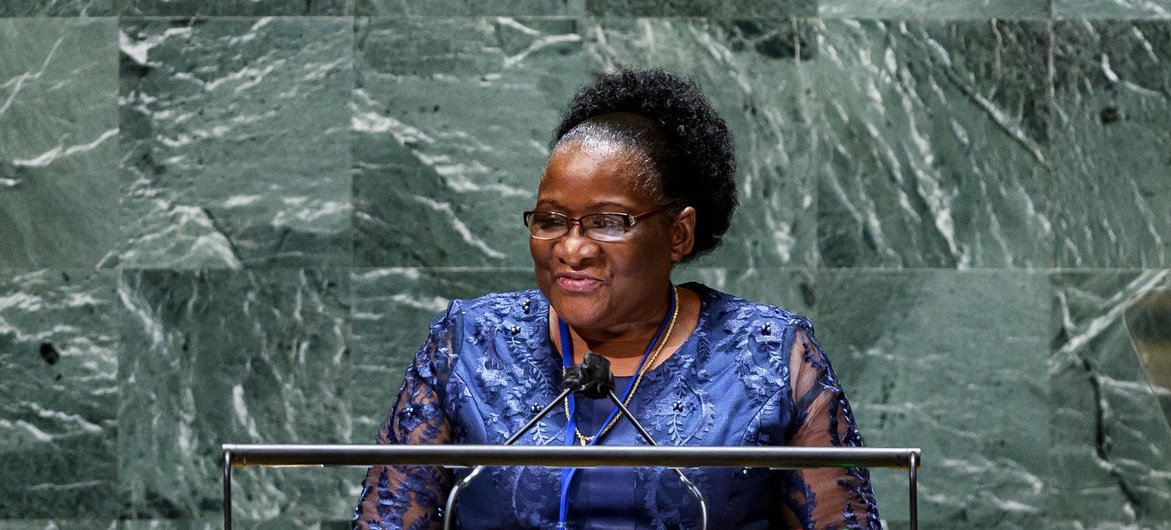Mozambique defends peace in Ukraine, “like everyone else,” but favors “positive pressure” as the way to get there, considering resolutions condemning Russia fruitless, the head of Mozambican diplomacy said today in Brussels.
Veronica Macamo spoke to Lusa and RTP after leading the work of an extraordinary meeting of the Portuguese-speaking African Countries and East Timor (PALOP-TL) with the European Union.
During her intervention at the meeting, she lamented the “destruction of Ukraine” and the “merciless violence” and rejected any contradiction between words and actions when faced with Mozambique’s successive abstentions in UN General Assembly resolutions condemning Russian military aggression.

“No, there is no contradiction, because we are as the whole world is,” in defense of peace, and “the problem is the paths” to achieve it, she said.
She pointed out that “Mozambique thinks it is important” that “positive pressure is exerted so that Ukraine and Russia sit at the table to overcome the problem” because all conflicts only end at the negotiating table.
On the day Mozambique assumes the monthly rotating leadership of the UN Security Council – in which it has been a non-permanent member since last January 3, for a period of two years – Mozambique’s head of diplomacy said she does not know anyone “who does not want peace” in Ukraine, but stressed that there are different approaches, and while “some think it is through resolutions, others think it is through dialogue.”
“If we look at the resolutions that have passed, and there are already many, has anything changed? Then we think that maybe we need to change our strategy. But there is no contradiction; we are all for peace,” Verónica Macamo declared.
Reinforcing her idea of “positive pressure” for the parties to come to the negotiation table, the minister said that “when two brothers are fighting,” and Mozambique considers both countries “brothers,” giving reason to one of the parties undermines the role of mediation.
Insisting that the major objective is to achieve peace in Ukraine because “people are dying and the country is being destroyed”, the head of diplomacy said that Mozambique has talked to both parties, “even before being at the United Nations Security Council”, “appealing to them to sit at the table effectively and have talks”.
During the meeting, and after a presentation of the priorities of Mozambique’s mandate as a non-permanent member of the UN Security Council, the Deputy Prime Minister of Cape Verde, Olavo Avelino Correia, and the Director for Africa of the European External Action Service, Rita Laranjinha, took the floor.
Both stressed the importance of unambiguously condemning Russian aggression, “which calls into question the principles and values of peace and international security.
When asked if Mozambique will continue to refrain from condemning the offensive launched by Moscow over a year ago, the minister said she could not anticipate future events but insisted that the priority is to achieve peace talks.
“I am saying what we are thinking today. We can evolve and think differently tomorrow, but I cannot imagine how Mozambicans will think a month or two months from now. Now, we think that what is needed is for the two parties to sit down,” he concluded.
In the most recent vote, held on February 23, the United Nations (UN) General Assembly approved, with an overwhelming majority of 141 votes, a resolution that demands the “immediate withdrawal” of Russian troops from Ukraine and calls for “a comprehensive, just and lasting peace.”
The draft resolution, drafted by Ukraine and allies with support from the European Union, received 141 votes in favor, seven against, and 32 abstentions from the 193 UN member states, reinforcing Moscow’s isolation in the international arena.
Russia, Belarus, Syria, North Korea, Eritrea, Mali, and Nicaragua voted against this text, and among the countries that abstained were China, Angola, Mozambique, and Cuba.
With information from Lusa

